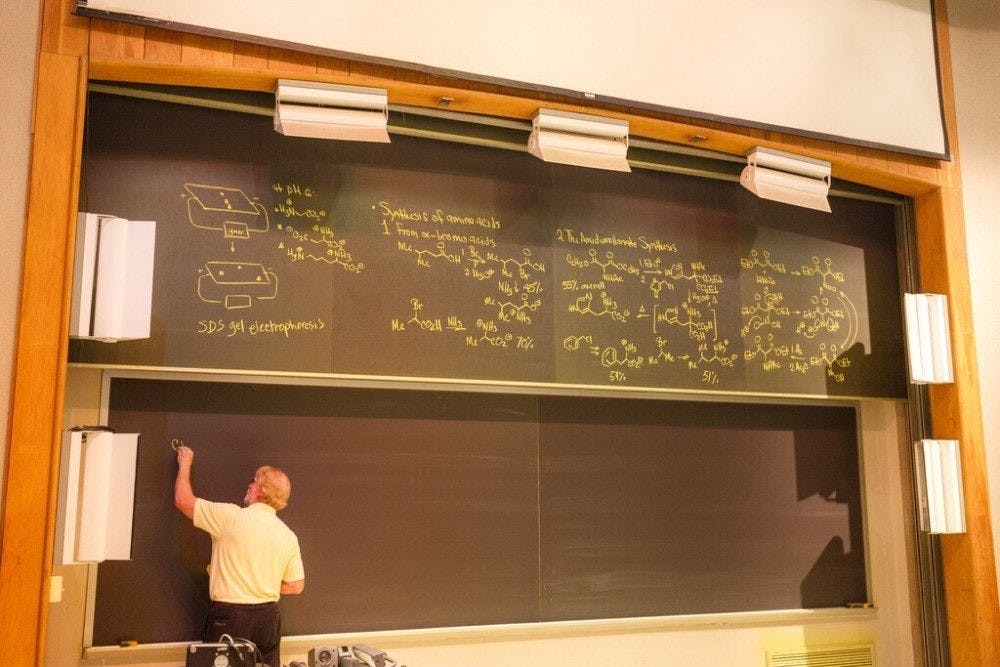Professors have rightfully been thought of as an essential part of the college experience. They lead and influence students as they discover and refine their interests and grow intellectually while at college. Given the increasingly polarized political climate, many feel compelled to advocate for issues they think deserve attention. Professors and administrators — like every citizen — hold convictions about certain issues. Given their position of influence in the intellectual development of college students, they also have access to a platform that allows them to express those ideas. However, to best serve their students and make the college experience as worthwhile as possible, professors must seek to provide students the tools to form their own opinions and conclusions instead of indoctrinating them.
While students should not expect their professors to abandon their convictions, they should expect their professors to encourage an environment of open and honest discussion in the classroom. In particular, when discussing the role professors have in either encouraging or stifling open debate, it is important to remember that professors occupy a position of power in the classroom. Students rely on them for letters of recommendations for jobs and academic opportunities, and the grades students receive while in college impact professional and post-graduate outcomes. Professors especially need to remain aware of how their own biases could affect a student’s willingness to engage in open discussion and contribute to the class.
When discussing the importance of free inquiry, the extreme speech and actions of agitators from across the ideological spectrum can cloud the debate. The focus of the University community members must remain on constructive speech and ideas that contribute to the advancement of knowledge. Exposure to different ideologies and perspectives benefits students and professors alike. At public colleges and universities such as U.Va., the First Amendment fortunately protects free speech — despite efforts to curtail those protections at public universities. Professors can and should be honest with their students about topics that are relevant to the course material of their classes but also remain aware of the potential that certain students may be discouraged to engage in honest discussion if they fear retaliation.
While college professors and administrators tend to lean left politically, the importance of encouraging free discourse in the classroom applies to every professor no matter his or her political affiliation. Conservatives often criticize colleges for peddling progressive ideology and creating environments that discourage conservative students from speaking freely. However, college professors, administrators and students should all work to ensure that the classroom and the university — as an institution dedicated to the advancement of knowledge — remains a place where truth can discussed and discovered freely.
One solution to foster climates of open discourse at universities is affirming the importance of free speech. The Foundation for Individual Rights in Education — a watchdog group for free speech and other related issues at college and universities — releases an annual list of the “Worst Colleges for Free Speech” and grades colleges and universities based on their free speech policies. While the University scores well on their assessment, students elsewhere do not enjoy the same protections. Students, professors and administrators should examine their own universities’ free speech protections and strengthen them if they fail to affirm the importance of open discourse.
While protecting free speech as a matter of policy lays the foundation for open discourse, its implementation remains another issue. Members of the University community all have the ability to either embrace free inquiry through their words and actions or stifle it. U.Va. provides a model for others to follow in this regard, and the student body here has benefitted from it. The University has hosted progressive leaders like former Secretary of State Hillary Clinton and conservatives such as Judge Amy Coney Barrett without upheaval. Certain cultures at universities foster hostility towards dissenting viewpoints, and students often play a significant role in cultivating such cultures.
However, colleges and universities across the country are giving off warning signs concerning the direction of open discourse in higher education. Our community must work proactively to address this issue and remain deliberate in our responsibility to discourage echo-chambers and embrace open dialogue. Such action is necessary to expose students to constructive ideas and perspectives in classroom lectures and discussions, which serves as a vital component in creating responsible thinkers and citizens.
Tom Ferguson is an Opinion Columnist for The Cavalier Daily. He can be reached at t.ferguson@cavalierdaily.com





